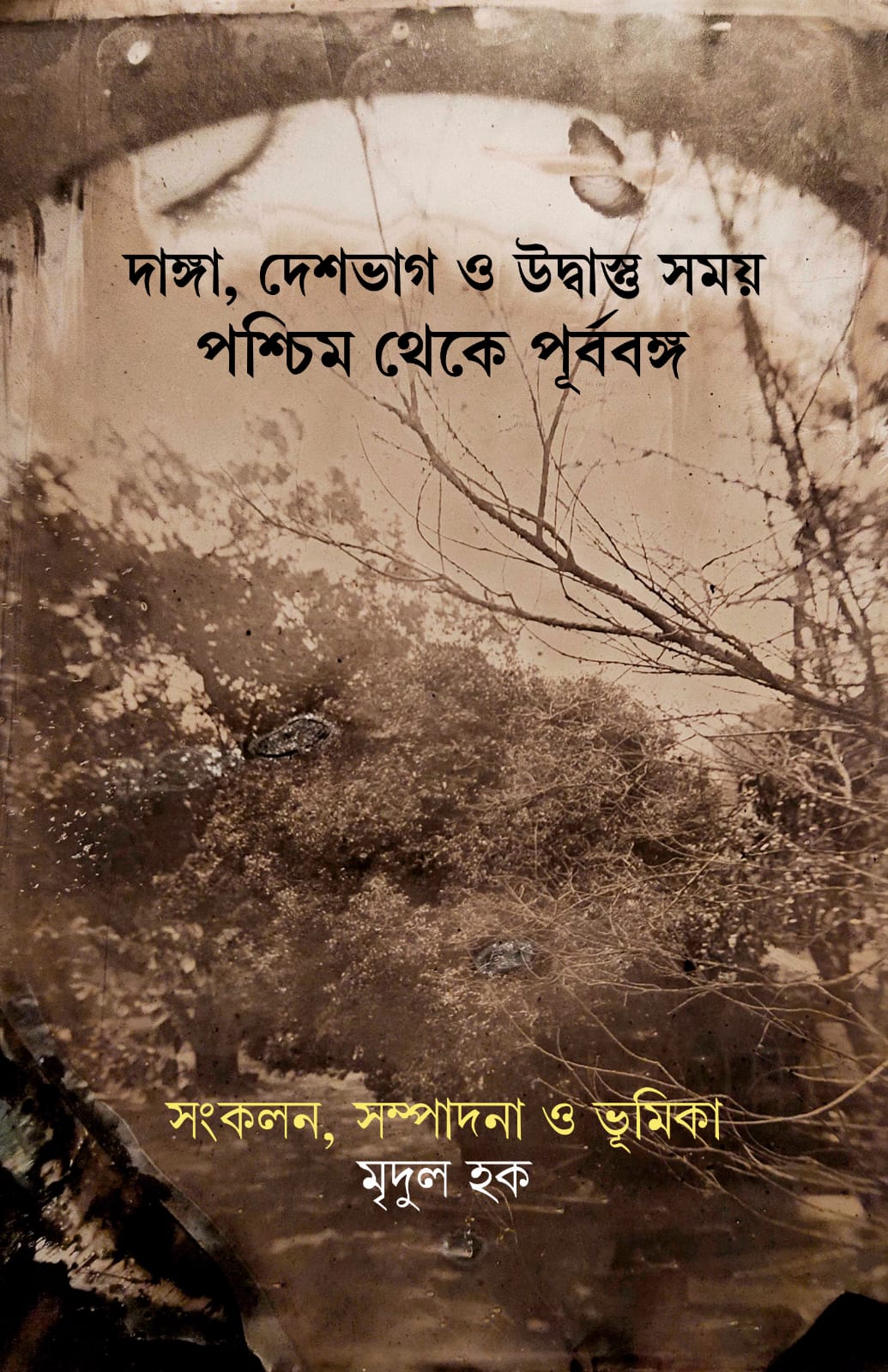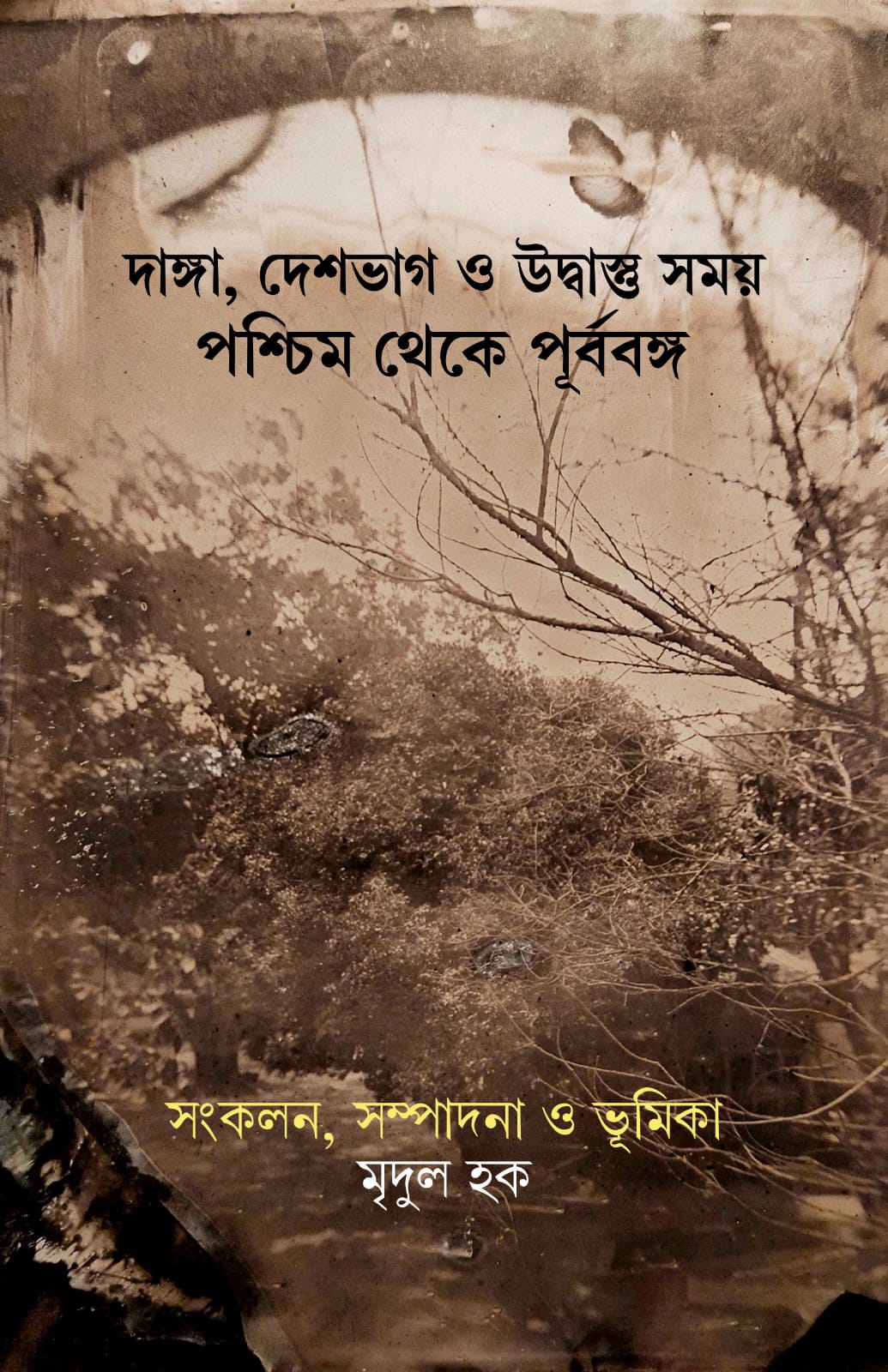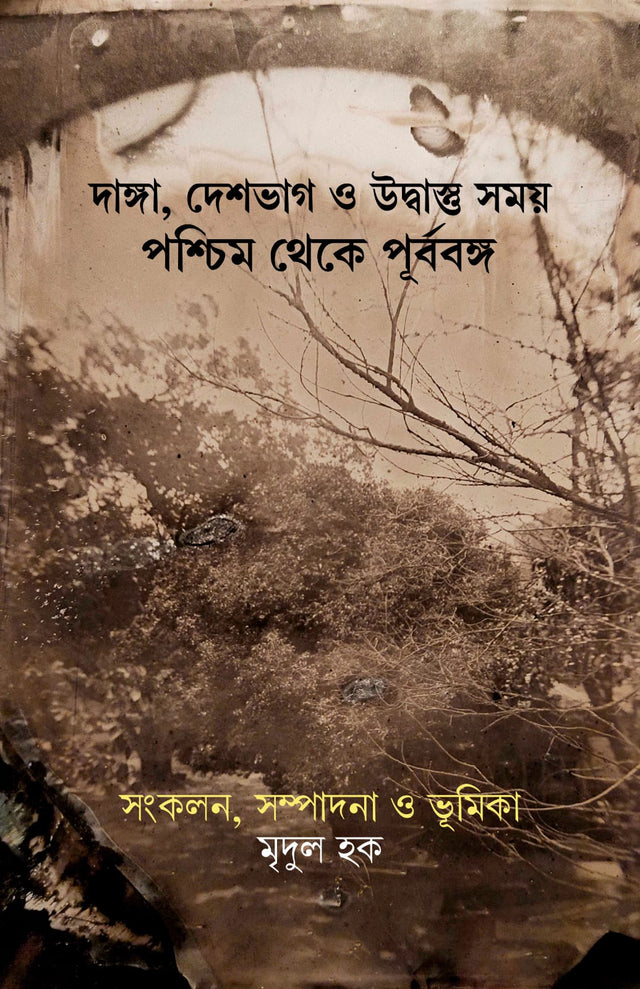Danga, Deshbhag o Udbastu Samay Paschim Theke Purbabanga (Bengali Version)
Danga, Deshbhag o Udbastu Samay Paschim Theke Purbabanga (Bengali Version) is backordered and will ship as soon as it is back in stock.
Couldn't load pickup availability
Genuine Products Guarantee
Genuine Products Guarantee
We guarantee 100% genuine products, and if proven otherwise, we will compensate you with 10 times the product's cost.
Delivery and Shipping
Delivery and Shipping
Products are generally ready for dispatch within 1 day and typically reach you in 3 to 5 days.
Author: Mridul Haque
Publisher: Mandas Prakashani
Language: Bengali
Publication Year: 2024
Genre: Memoir and Essay
Pages: 460
Cover: Hardbound
ISBN: 9789395065634
Book Description:
Danga, Deshbhag o Udbastu Samay Paschim Theke Purbabanga is a powerful memoir and essay by Mridul Haque, published by Mandas Prakashani in 2024. This book spans 460 pages in a hardbound format and dives deep into the emotional and historical journey of those affected by the Partition of Bengal.
Through evocative storytelling, the author brings to life the violent communal clashes, the harrowing stories of displacement, and the deep sense of loss felt by the people who had to leave their homes in West Bengal to escape the brutal realities of partition. The book examines not only the political upheaval of the time but also the psychological and cultural impact on those who lived through it.
Written with a poignant yet insightful perspective, Haque’s narrative captures the complexities of the past, offering readers a nuanced view of the migration, struggles, and rebuilding of lives post-partition. This book is essential for those who wish to understand the human cost of political decisions and the resilience of those displaced by history.
Danga, Deshbhag o Udbastu Samay Paschim Theke Purbabanga is an important addition to the literary discourse on South Asian history, communal violence, and the refugee experience, all told through the eyes of the people who lived it.





